
On most occasions, when I interact with entrepreneurs and we discuss challenges at hand, the solution they often suggest involves throwing more people at a problem. Are your customers complaining more? Hire more people in the customer support team. Are your accounts not in order? Request a better CA look at the mess. Not making enough sales? Consider hiring more people or modifying incentive structures.
But the thing is, if we view these problems as mere symptoms that point to something critical not in place—our approach will change. In my experience, this missing piece is often an asset that can remove bottlenecks, expedite processes, or bring predictability to the operations.
Getting more people makes sense when you are capitalising on their work, not for a clean-up job, which is clearly an expense. People can only be as good as the systems and tools they use in your business. However, if things are in place, i.e., your business assets are in place, the business will scale in proportion to the number of people working those assets.
So now the key question is: What steps can you take to build those assets? Until the previous article, we discussed various assets, their importance, how they work and help you. But if you were to develop each of them from the ground up— how could you do that? What’s the process? Let’s talk about that...
Prioritise concepts or ideas
As always, all such things start with an idea or a concept. Ideas are fun and exciting, but anyone will tell you that they are worthless.
Esta historia es de la edición February 2024 de Electronics For You.
Comience su prueba gratuita de Magzter GOLD de 7 días para acceder a miles de historias premium seleccionadas y a más de 9,000 revistas y periódicos.
Ya eres suscriptor ? Conectar
Esta historia es de la edición February 2024 de Electronics For You.
Comience su prueba gratuita de Magzter GOLD de 7 días para acceder a miles de historias premium seleccionadas y a más de 9,000 revistas y periódicos.
Ya eres suscriptor? Conectar
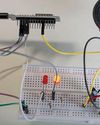
ESP32-Powered AUDIO-VISUAL SIREN
This sound alternator is designed to simulate the effects of a police siren, combining sound and light to create a dynamic audio-visual experience.
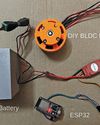
BLDC MOTOR With Web-Based Speed Control Using ESP32
Integrating wireless control into brushless direct current (BLDC) motor systems opens up exciting possibilities for applications such as remote-controlled cars, robots, and other innovative systems.
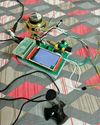
Pi Zero Portable BILINGUAL TRANSLATOR
This system is designed as a bilingual translator, leveraging the gTTS library to support multiple Indian languages, including English (en), Bengali (bn), Gujarati (gu), Hindi (hi), Kannada (kn), Malayalam (ml), Marathi (mr), Tamil (ta), Telugu (te), and Urdu (ur).
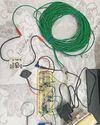
Op-Amp-Based VEHICLE THEFT DETECTOR
A simple, low-cost device can effectively alert homeowners or occupants if a parked vehicle is moved or tampered with.

loT SMART METER With Dashboard
Energy meters in homes track electricity usage, enabling accurate billing by governments and providers.

Choose The Right Cloud Platform For Implementing loT PROTOCOLS
Working with loT protocols like MQTT, AMQP, and CoAP on cloud platforms is essential for developing scalable and efficient lol applications. The choice of the programming platform will depend on factors like project requirements, existing skills, and target devices. Leveraging the appropriate libraries and cloud services can enable seamless integration of lol devices with cloud-based applications.

Why TMR SENSORS Lead Next-Generation Design
TMR sensors are gaining traction in industries needing precision and power efficiency. What makes them the go-to choice for modern designs?
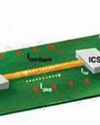
DESIGNING PCBs For EMI Management
Electromagnetic interference can derail your PCB’s performance. EMI management is not just a technical necessity but a hallmark of exceptional PCB design.

CUTTING COSTS, NOT CORNERS: Building Large Scale Applications With Open Source Software
Here are some strategies and best practices for leveraging open source to create enterprise-grade web and mobile applications without sacrificing quality or functionality.

"We Are One Of India's Very Few State Bodies To Manage The Entire Lifecycle Of The Electronics EcosystemFrom Approvals To Subsidies."
What is Gujarat State Electronics Mission GSEM), and how is it attracting major investments in electronics manufacturing, particularly semiconductor manufacturing, to Gujarat? To delve deeper, Electronics For You’s Nijhum Rudra spoke with Manish Gurwani, the head of GSEM. Here is what he revealed...